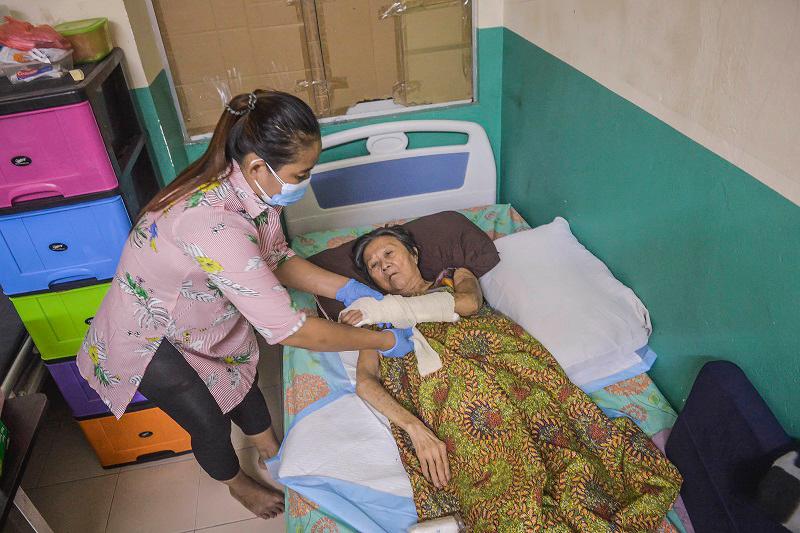PETALING JAYA: As Malaysia’s elderly population continues to grow rapidly, experts are urging the government to introduce a Senior Citizen Act, warning that older adults remain vulnerable under a healthcare system already strained by a severe shortage of geriatric specialists.
Universiti Putra Malaysia’s Malaysian Research Institute on Ageing director Assoc Prof Dr Rahimah Ibrahim said the absence of comprehensive legislation has led to weak accountability and increasing vulnerability among the elderly.
Rahimah highlighted the critical shortage of geriatricians as one of the most pressing issues.
“As of 2024, there are only 60 such specialists nationwide. With Malaysia projected to have 5.49 million elderly citizens by 2030, we would need at least 549 geriatricians to meet the ideal ratio of one per 10,000 seniors.
“Currently, we’re producing just eight geriatricians a year. That will only bring the total to 108 by 2030, far below what’s needed,” she said.
She explained that Malaysia’s ageing population faces a range of challenges, including limited access to healthcare, weakening family support structures and increasing financial insecurity.
Noting a rise in elderly abandonment cases at hospitals and care homes, Rahimah said such incidents are often the result of urban migration, dual-income household pressures and the erosion of traditional family support systems.
She also referenced Employees Provident Fund data from October 2024, which showed that only 36% of active members met the Basic Savings threshold of RM240,000 by age 55, raising concerns about retirees’ ability to support themselves.
Universiti Teknologi Mara senior lecturer Dr Nur Amalina Aziz echoed these concerns, observing that elderly individuals are increasingly being left at hospitals and welfare homes, sometimes permanently.
“When contacted, these families are often unreachable. Abandonment is frequently due to a lack of family support, financial hardship, strained relationships or disputes,” she explained.
Amalina, who also researches issues affecting older persons, stressed the urgent need for legislation that explicitly protects senior citizens from neglect and abuse.
“The law must include clear obligations, mandatory reporting procedures and definitions of abuse, neglect and abandonment.
“It should also provide emergency shelters, professional medical support, a dedicated helpline and a one-stop agency for the protection of older persons,” she noted.
She pointed out that although Malaysia introduced the National Policy for Older Persons in 1995 and revised it in 2011, there is still no specific law prioritising the needs of senior citizens.
“Many rural areas lack proper facilities. Attention and resources remain concentrated in urban zones, leaving many older people underserved and at risk.
“The rights of the elderly are often generalised in existing policies, without tailored approaches to address their unique needs,” she added.
Amalina highlighted Japan and Singapore as models in addressing the challenges of an ageing population.
“Japan’s Elder Abuse Prevention Act and Employment Stabilisation Act help prevent mistreatment and promote job opportunities for older individuals.
“Singapore introduced the Vulnerable Adults Act in 2018 to protect those, especially seniors, who are physically or mentally unable to care for themselves.
“Both countries go beyond welfare. They focus on freedom from abuse, financial security and access to lifelong learning and employment opportunities.”
She emphasised that older Malaysians are not a burden and should be empowered to live independently, remain active and feel included in society.
“Older people have given so much to the country, yet many now feel unsafe and unsupported at home.
“Family and community support are key to preventing elder abandonment, but families need proper training to care for their ageing loved ones,” she said.
“With the right knowledge, they can give better, more respectful care. Many elderly victims stay silent due to poor health or fear of losing their career, which is why public awareness and mandatory reporting are so important.”









